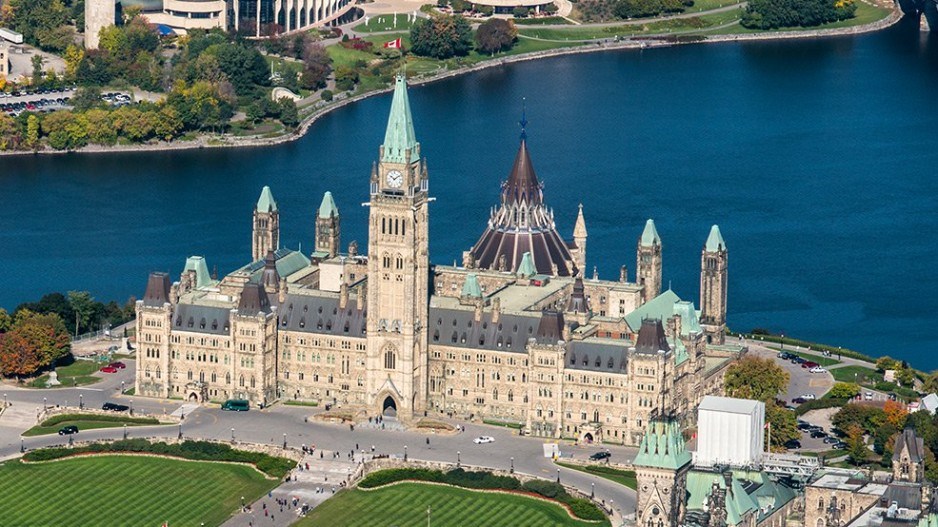A minority government in Ottawa will likely increase concerns over doing business in a country where red tape and wait times for project approvals already generate considerable investor uncertainty.
That is the assessment of one Canadian foreign trade and investment policy analyst, who noted that a minority Liberal government, possibly boosted by the NDP in a potential coalition, could add to the perception that it is now even harder to get government approval for a range of ventures, thus driving away potential investment from abroad.
“Companies are constantly assessing what’s happening in various markets around the globe, and even a perception of more red tape would mean some investors would look to somewhere else like the United States,” said Carlo Dade, director of the Trade & Investment Centre at the Canada West Foundation. “That’s just the reality."
Dade, who worked on several Canadian free-trade negotiations with other countries in the past, said Canada is benefiting from an uncertain international trade environment in the United States, where the White House has shown a will to unilaterally impose trade and investment policy without warning. But as the recently signed bilateral trade agreement between the United States and Japan shows, Canada’s advantage can dissipate instantly.
“I’ve talked with trade officials throughout the Asian market, and there are real concerns with the Canadian market,” Dade said.
But not all analysts think a minority government is necessarily a bad thing for Canada’s foreign trade and investment picture.
Allam Advisory Group founder and CEO Omar Allam, a former Canadian diplomat and World Bank senior consultant, said while some investment deals with face more scrutiny, it should not be across-the-board for all foreign direct investment (FDI) coming into the country.
“Investors are typically looking at tax rates and different tax payments as key factors for determining whether to invest. They are looking at technological capabilities, cost of labour and the ease of moving capital in and out of a country. But the regulatory and transparency piece is an important piece, too.
“If you had major Chinese or Saudi investment, they will be more scrutinized than investments from other markets. But I wouldn’t say that’s a sign of instability and a future where there will be bottlenecks. It is a future where the decisions the government tries to push forward will be highly scrutinized and reviewed – and that’s not a bad thing.”
Dade, however, said even if investment processes aren’t slowed, the perception of complications coming from a minority government can be enough to dissuade international investors, especially when Ottawa has gained a reputation not only for handling investment projects case-by-case, but also for overall foreign policy matters.
“If the perception is that we aren’t reliable, investors will look elsewhere,” Dade said. “The challenge now is going to be changing that perception abroad.
But that would be difficult if you don’t make clear what projects you are prioritizing, and there’s no long-term view of how to go about things. We are great at identifying problems after the fact, but foreign businesses don’t want you to be good at putting out fires; they want you to be good at seeing where the risks are and stopping fires from happening in the first place.”
Adding to the difficulty may be the fact that Prime Minister Justin Trudeau’s initial international clout after his first election in 2015 took a heavy blow in late 2017, when Ottawa abruptly cancelled an appearance at APEC 2017 with Japanese Prime Minister Shinzo Abe on the Comprehensive and Progressive Agreement for Trans-Pacific Partnership (CPTPP). That angered Tokyo and other CPTPP partners.
Trudeau also suffered a setback in China that same year when an expected start to free-trade talks was scuttled during a trip to Beijing, where Chinese leaders pushed back at Ottawa’s bid to add items like workers’ rights into the deal. That cooled Canada-China relations a full year before the Meng Wanzhou affair sent the relationship into a deep freeze.
“I believe that the experience of other world leaders working with Trudeau in the past few years has taken down his international capital,” Dade said. “A lot of the officials we talk to keep coming back to what happened in Da Nang [site of APEC 2017], when we embarrassed the Japanese. Even the Australians were cursing us at that time.”
Officials from several consulates in Vancouver, including those from China and Japan, declined to comment on the federal election results.
But Allam believes that, given Canada’s interprovincial trade barriers, many foreign investors are staking more on their relations with individual provinces. So a big part of the new Liberal minority government’s focus globally, he said, should reflect efforts to win support from provinces, especially those in the West where the Liberals lost ground in the election.
“Many of the provinces where the Liberals lost ground, if you look at the statistics, the majority of these economies are dependent on trade and exports of goods and service,” said Allam.
“Saskatchewan exports just under 70% of what it produces to countries around the world. So naturally, the federal government’s trade policy will have to be co-ordinated with the provinces. You need to be aligned.”




